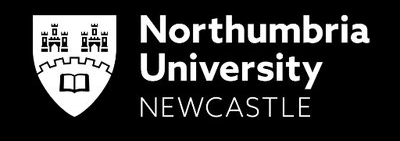About Applied Economics Msc in Northumbria University, Newcastle
The Covid-19 pandemic has caused millions of deaths around the world, but it has also triggered an economic crisis of enormous magnitude.
Economics is at the heart of many of society’s biggest challenges. How can the world recover from the Coronavirus pandemic? How do governments decide where to spend public money? How can we reduce crime and poverty? Can the next generation expect to be worse off than previous generations?
This Employability-focused Applied Economics MSc will provide you with a robust theoretical and practical preparation to address those questions and to be ready for the challenges of the future.
Aimed both at those who have studied economics and want to develop their knowledge in practical application, and those who haven’t and wish to do a conversion course, the content of this course is business-relevant and informed by the very latest research in the field.
You will explore the principles and theories of Macroeconomics, Microeconomics and Econometrics, gaining a detailed understanding of the contemporary knowledge in these areas with a focus on the application to real world problems.
A key feature of our MSc Applied Economics programme is the integration of a finance module which will enable you to develop specialist skills necessary to pursue a career in economics and allied areas.
Modules such as Econometric Modelling and Applied Research Methods will help you to formulate, test and apply formal economic models to real-world data. Elements of the programme have been designed to provide opportunities for you to develop as a professional economist and analyst, and to acquire transferable intellectual and personal skills.
Through gaining a sophisticated understanding of economics in practice this MSc Applied Economics will give you the chance to expand your career options by combining knowledge gained in your undergraduate programme with a specialised master’s degree.
Entry Requirements
- 55% (52% from Delhi/Mumbai/Pune Universities) for ONE YEAR courses requiring a 2:2
- 60% (60% includes Delhi/Mumbai/Pune Universities) for ONE YEAR courses requiring a 2:1
- 60% (60% from Delhi/Mumbai/Pune Universities) for ALL TWO YEAR courses requiring a 2:2 or a 2:1
English Language Entry Requirements
- International applicants are required to have a minimum overall IELTS (Academic) score of 6.5 with 5.5 in each component (or approved equivalent*)
Northumbria University Campus and Accommodation
Some of the choices available are mentioned below:
| Residence Halls |
Cost per week (GBP) |
| Trinity Square |
121.03 |
| Claude Gibb |
78.96 |
| Lovaine Hall |
79.80 |
| Glenamara House |
98.00 |
| Winn |
119.98 |
| Camden Court |
132.25 |
| New Bridge Street |
131.95 |
